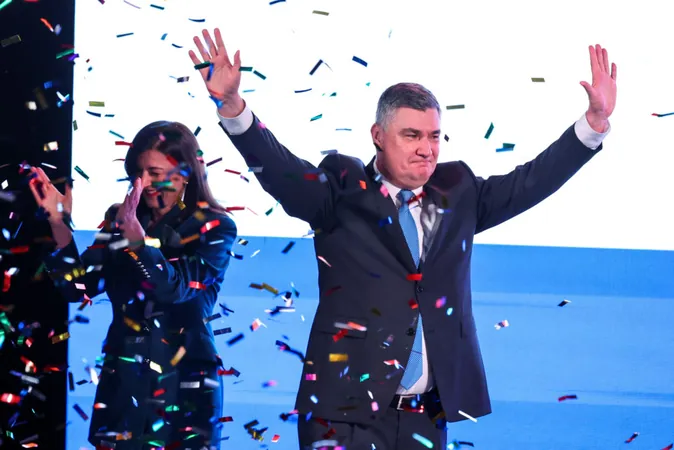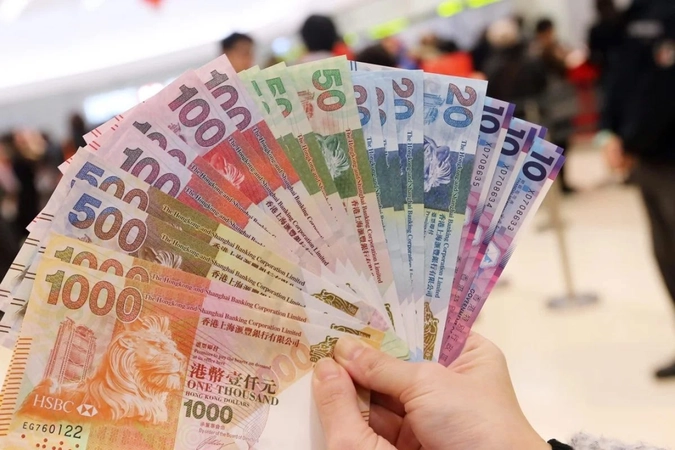
Zoran Milanović Wins Reelection in Croatia: A Political Earthquake!
2025-01-12
Author: Ling
Introduction
In a stunning turn of events, Croatia’s President Zoran Milanović has claimed victory in the runoff election, securing a remarkable 74% of the votes against ruling party candidate Dragan Primorac, who managed to garner only around 26%. This election not only cements Milanović's position for another five years but also signifies a critical juncture in Croatian politics amid rising discontent over various social and economic issues.
Milanović's Background and Political Style
Milanović, backed by opposition forces and known for his candid criticism of the European Union and NATO, previously served as Prime Minister with a mix of successes and controversies. His combative communication style, often compared to that of the controversial U.S. political figures, has made him a polarizing yet popular figure in Croatia. The election results underscore his appeal in a nation grappling with inflation, corruption scandals, and a troubling labor market.
Political Tensions
The political landscape in Croatia is heated, with Milanović's reelection setting the stage for further confrontations with Prime Minister Andrej Plenković. Their clash during Milanović's first term raised eyebrows, as the two leaders often found themselves at odds over policy direction and national priorities.
Election Overview
Prior to the runoff, Milanović had already demonstrated his electoral strength by leading the initial round of voting on December 29, where he fell short of a majority by a mere 5,000 votes. Primorac, a forensic scientist who previously attempted a presidential bid in 2009, was unable to keep pace, finishing significantly behind with 19% in the first round.
Challenges Facing Croatia
With a population of around 3.8 million, Croatia's challenges are palpable: inflation rates are soaring, corruption is rampant, and a persistent labor shortage looms over the economy. Despite these issues, Milanović expressed optimism after voting, stating, 'I believe in victory because I think I am worth it and because it is important.'
Milanović's Campaign and EU Relations
Throughout his campaign, he continued his critical stance towards Brussels, labeling the EU as 'non-democratic' and speaking against the 'mental violence' of its policies. Milanović stressed the need for a more inclusive, democratic Europe that respects different opinions—a bold claim, considering his reputation as a straight-talker.
Presidential Influence
Despite the ceremonial nature of the presidency in Croatia, Milanović's role carries substantial influence, especially as he acts as the Supreme Commander of the Armed Forces. His prior tenure saw tensions escalate as he blocked the deployment of Croatian officers to NATO’s mission in Germany—an action criticized and deemed controversial in light of ongoing geopolitical tensions, particularly concerning Ukraine.
Future Outlook
Political analysts suggest that with Milanović's reasserted power, the political balance in Croatia could shift, challenging the long-standing dominance of the Croatian Democratic Union (HDZ). Milanović’s determination to move forward without yielding to the political establishment or external pressures may redefine Croatian governance in innovative ways.
Conclusion
With the election results cementing his authority, observers will keenly watch how Milanović navigates the turbulent waters of Croatian politics against the backdrop of EU relations, NATO commitments, and domestic challenges moving forward.



 Brasil (PT)
Brasil (PT)
 Canada (EN)
Canada (EN)
 Chile (ES)
Chile (ES)
 Česko (CS)
Česko (CS)
 대한민국 (KO)
대한민국 (KO)
 España (ES)
España (ES)
 France (FR)
France (FR)
 Hong Kong (EN)
Hong Kong (EN)
 Italia (IT)
Italia (IT)
 日本 (JA)
日本 (JA)
 Magyarország (HU)
Magyarország (HU)
 Norge (NO)
Norge (NO)
 Polska (PL)
Polska (PL)
 Schweiz (DE)
Schweiz (DE)
 Singapore (EN)
Singapore (EN)
 Sverige (SV)
Sverige (SV)
 Suomi (FI)
Suomi (FI)
 Türkiye (TR)
Türkiye (TR)
 الإمارات العربية المتحدة (AR)
الإمارات العربية المتحدة (AR)